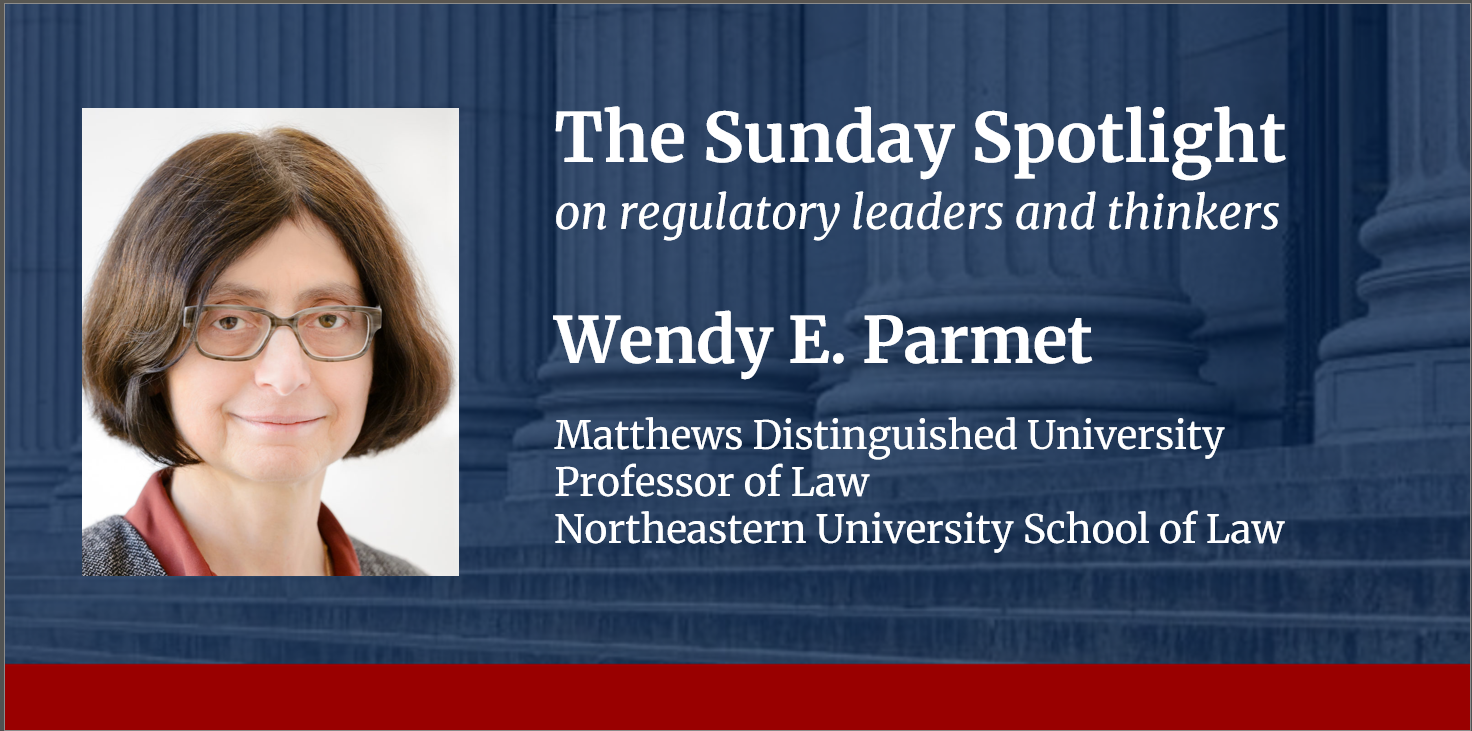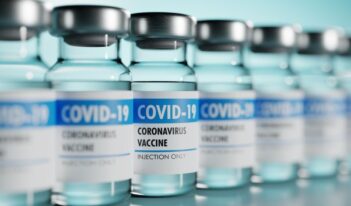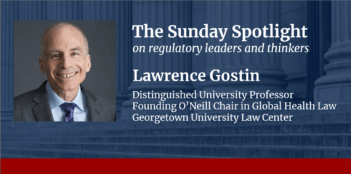
Wendy E. Parmet discusses the impact of skeptical federal courts on public health regulation.
In a conversation with The Regulatory Review, public health law scholar Wendy E. Parmet examines the increasing judicial distrust of public health regulation that emerged during and following the COVID-19 pandemic, especially in the U.S. Supreme Court.
In recent years, Parmet notes, federal judges have become increasingly weary of public health agencies and the regulations they issue. During the COVID-19 pandemic, the U.S. Supreme Court sided with litigants who challenged public health orders on religious grounds. The Court also used the “major questions doctrine,” which holds that agencies cannot issue regulations of “vast economic and political significance” without clear congressional authorization, to reject several federal public health initiatives.
Parmet attributes this growing judicial skepticism to a rise in individualism, along with escalating popular distrust of scientific expertise. She offers potential actions that legislators and agencies can take to ensure their plans withstand legal challenges, including explicit delegations of authority to public health officials. Parmet also emphasizes the importance of fostering public trust in health regulators.
Parmet is the Matthews Distinguished University Professor of Law at Northeastern University School of Law, where she co-directs the Center for Health Policy and Law. In addition, Parmet is the co-editor of the Northeastern University School of Law Public Law and Legal Theory Paper Series. She is the recipient of the American Public Health Association Law Section’s Lifetime Achievement in Public Health Law Award and is the Associate Editor for Law & Ethics for the American Journal of Public Health.
The Regulatory Review is pleased to share the following interview with Wendy E. Parmet.
The Regulatory Review: What are the most notable changes in public health law and regulation that have emerged in recent decades?
Parmet: Let me focus on developments that have emerged in the courts, which have had enormous implications for public health law and policy. For most of American history, courts granted considerable deference to the regulations and orders of health departments, and the conclusions of scientific experts. Courts have largely abandoned that deference and replaced it with skepticism toward the actions and conclusions of health agencies and health experts. Increasing judicial skepticism shows up across an array of legal doctrines, including those involving judicial review of federal administrative regulations and religious liberty challenges to public health laws. Although each of these doctrines is different in important ways, the skepticism toward science and public health expertise is a notable and novel throughline.
Growing judicial skepticism is especially evident in the U.S. Supreme Court. The causes of this skepticism are multiple. One cause is the rise of individualism and the increasingly common view—on both sides of the political divide—that the fate of our health is in our own hands. When health decisions are viewed as “individual choices,” courts are understandably less inclined to defer to actions that are taken in the name of protecting the public’s health. In addition, judicial skepticism toward public health agencies has followed the wider cultural and political distrust of expertise and “elites.” Some of this distrust comes from mistakes that were made during the COVID-19 pandemic, but trust in expertise started declining long before the pandemic began. That shift was fueled in part by industries and political groups that advance their interests by discrediting science.
TRR: Are there any specific forms of public health regulation that may be more or less prone to judicial skepticism today than others?
Parmet: In the early 21st century, it appeared that the popular and legal pushback against public health initiatives would center on efforts to protect Americans from chronic conditions but would not extend to public health laws that focused on infectious diseases. Indeed, there was a fairly broad bipartisan consensus that laws such as those mandating vaccines were needed to protect people against infectious diseases. But as the COVID-19 pandemic progressed and became more politically polarized, that consensus began to break down. By late 2020, after Justice Amy Coney Barrett joined the U.S. Supreme Court, the Court began to express skepticism about COVID-19-related laws. Yet, as shown in Dobbs v. Jackson Women’s Health Organization, overturning Roe v. Wade, and the Court’s decision this past term in United States v. Skrmetti upholding state laws prohibiting gender-affirming care for minors, the Court seems open to granting deference to laws relating to reproductive and sexual health, even when those laws reject the scientific consensus.
TRR: What particular legal vulnerabilities do public health regulations face when they affect religious liberty?
Parmet: The current U.S. Supreme Court is very protective of religious liberty. Under several cases decided during the COVID-19 pandemic, the Court held that courts should apply strict judicial scrutiny to any religious liberty claim as long as the law treats any secular activity more favorably than a comparable religious activity or the law gives officials discretion to grant exemptions. These principles meant that religious institutions and worshippers had to be exempt from limits on gatherings if those limits did not apply to shopping malls or other arenas that the Court found “comparable” to worship. More recently, some lower courts, but not most, have held that state vaccine mandates that provide for medical exemptions must also offer religious exemptions. In effect, the 125-year-old judicial consensus about vaccine mandates has been destabilized.
TRR: How does the “major questions doctrine,” which the Supreme Court recognized in West Virginia v. EPA, impact judicial review of public health regulations?
Parmet: The major questions doctrine holds that agencies cannot regulate in areas of significant political or economic impact without clear authorization from Congress. The U.S. Supreme Court applied this doctrine to several COVID-19 era measures, and a few state courts relied on similar reasoning to limit the reach of state emergency orders during the pandemic. One problem with the doctrine is that it gives courts significant discretion to decide what questions count as “major.” This flexibility creates significant uncertainty for health agencies when they try to use their general powers to respond to new threats and crises.
TRR: What steps might legislatures or public health regulators take to design policies that survive legal challenges?
Parmet: Legislatures should review health laws to ensure they provide clear authorization for health agencies to continue to do the critical work that they have long done and respond to new crises that may arise. Legislatures should not assume, as they have long assumed, that courts will read public health statutes broadly and deferentially. Therefore, statutes should specify the authorities that they give agencies and the level of judicial review courts should apply.
Public health regulators should work closely with their lawyers to understand the new limits that the judiciary has imposed on their authority. And because regulators no longer can count on judicial deference, they should work to ensure that their actions are supported by a strong record. Most importantly, regulators need to work to regain the trust of communities and attain broad buy-in for their actions. Litigants are more likely to sue agencies—and courts are more likely to rule against them—when the public distrusts and rejects agency actions.
TRR: What do you find most exciting, promising, or challenging about the current state of public health regulation? What advice would you give to law students or new lawyers interested in public health law today?
Parmet: It is a challenging time for public health and the field of public health law. Public support for public health law has waned, and courts have overturned or set aside doctrines and precedent that lawyers have long relied on. But with challenges come opportunities. It will be the job of the next generation of public health lawyers to help health officials navigate this new environment and to develop and fight for the new precedents and approaches that will lay the foundation for a healthier tomorrow.



